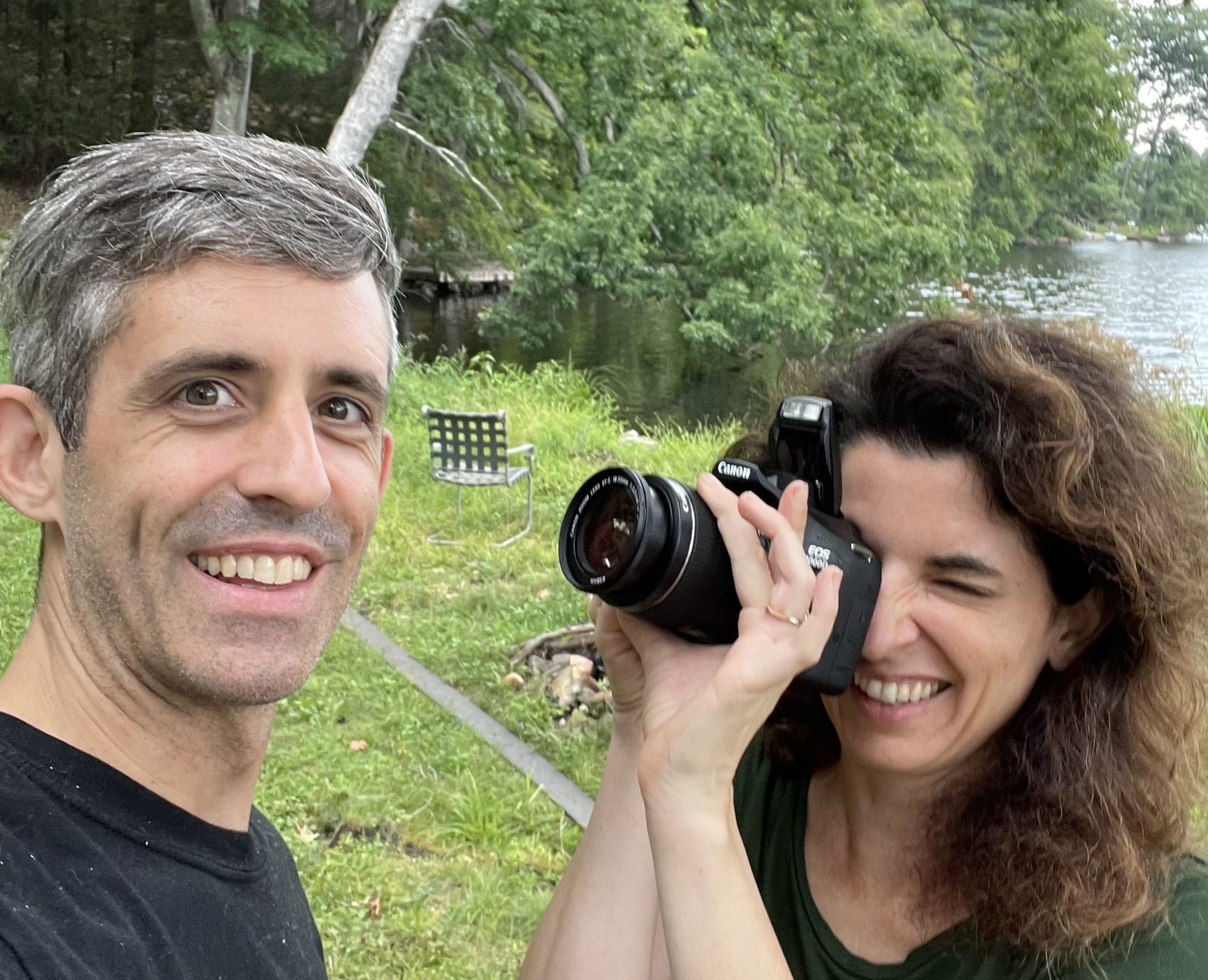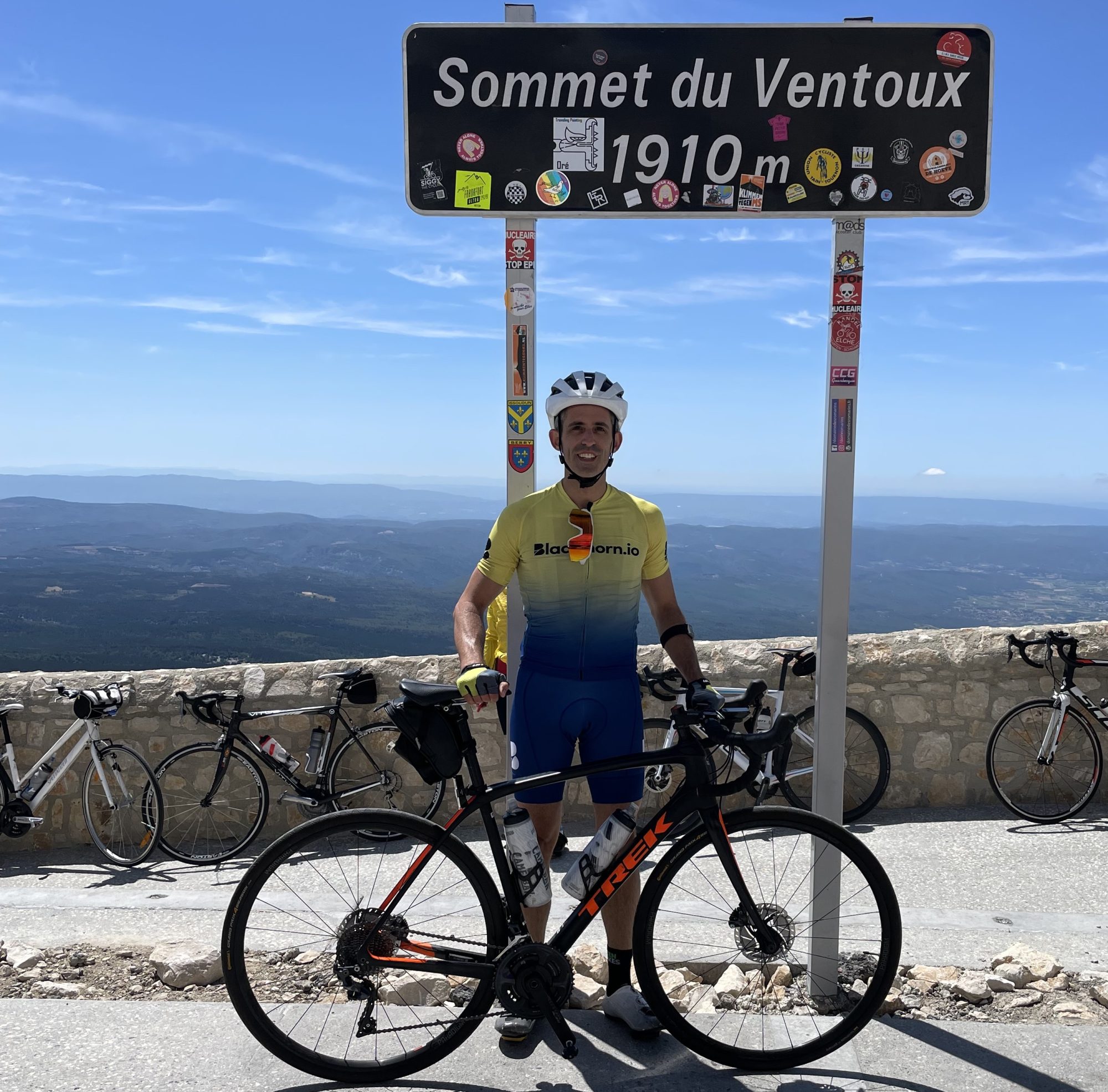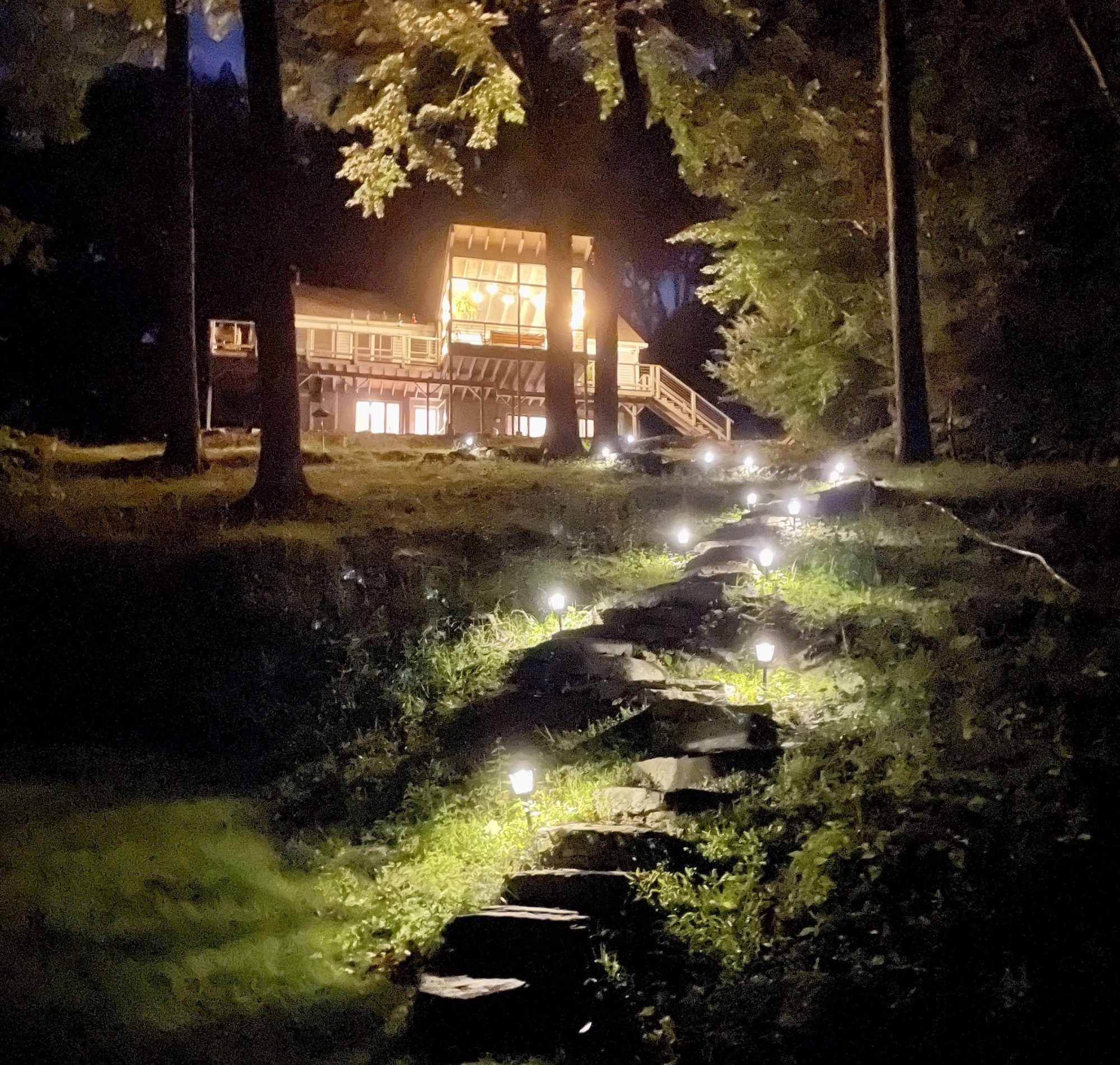
Interviews 24.04.2023
Getting to Know: Chris Federspiel
You may never have read an interview as candid, heart-felt and vulnerable as this one. Eleanor Dallaway tells the story of Chis Federspiel, founder of Blackthorn.io

Interviews 24.04.2023
You may never have read an interview as candid, heart-felt and vulnerable as this one. Eleanor Dallaway tells the story of Chis Federspiel, founder of Blackthorn.io
“There’s this trait of having bipolar 2 that means you have no filter,” explains Chris halfway through our time together. By this point, I’ve figured that out for myself.
“My father was an asshole,” he jumps right in when I suggest we start his story at the very beginning – his childhood. “He’d come home, screaming, hitting us. To the public, he was this amazing local hospital president, which he saved from bankruptcy and completely reformed, but to me…” I let this hang. It’s undoubtedly the most jaw-droppingly candid start to any interview I’ve ever done. I metaphorically strap on my seatbelt. This is going to be quite a ride.
We meet on a Sunday morning in a no-fuss American coffee shop in Greenwich Village, NYC. It gave me Shoreditch London vibes. It was a beautiful crisp morning with a faultless blue sky. Chris and I had spoken only once before on Zoom for the feature I was writing on CEO burnout. I loved what he had to say, so when on a serendipitous trip to NYC (one of his places of residence), I asked Chris to meet. His reply surprised me. “That sounds great! But out of curiosity, why me?” This was an early indicator of modesty, or dare I use the term, imposter syndrome.
Chris is the founder of a highly successful tech company, Blackthorn.io. His story is certainly worthy of being told, so his modesty is misplaced. We’ll get to ‘the now’ a little later; for now, let’s journey to Bucks County, Philadelphia, and Chris’ childhood. I’ll tell his story chronologically, but this doesn’t reflect the true order of our conversation. A symptom of chronic attention deficit disorder (ADD), Chris tends to jump from one topic to another with barely a blink in between. It’s actually endearing, and I’ve enjoyed fitting together the tales with the same satisfaction you get from completing a jigsaw puzzle. “My friends used to tease me that everything I said was non sequitur,” he admits.
“My childhood was spent in the suburbs; it was middle class,” but it was by no means idyllic. “My parents split when I was 11 and divorced when I was 14, and I got really, really depressed.”
Chris retreated into himself, never leaving his computer and getting joy only from changing the operating system every few weeks. He played games, experimented with different programmes and chat services and “started writing scripts and whatnot.” His mother, concerned about his mental health, took him to a therapist, whom he saw for two years until they moved. Quite incredibly, that very same therapist is Chris’ therapist today. At 79 years old, Donna Gerard Marder works with Chris four times a week, and it’s beautifully apparent that Chris believes he owes so much to her.
“When I was 14, we moved to New Jersey with Mum. We were returning to Westchester every two weeks to see my Dad, and he’d hit us a lot, particularly me. He had a horrible temper, drank every night, and always came home stressed out.” Chris’ dad was adored by the locals, known for his role at the hospital and treated “almost like royalty.” So Chris understandably found it hard to process how this outwardly worshipped man treated him with such aggression. Born with the same name as his father, John Federspiel, Chris has since disowned his Christian name and the man he inherited it from.
“I liked being alone because it was safe for me”
“It made me want to be alone because it was safe for me,” he painstakingly recalls. “I’d spend time alone on my computer or in the forest. I always liked working with computers, so I started doing some work for a friend who had his own internet company in high school.”
In his later school years, Chris was prescribed what he describes as “drugs for the brain”, which he clarifies to mean Prozac. A couple of years later, he was diagnosed with bipolar 2. While it explained a lot, Chris recalls how hard it was to process. “When I drank with my friends, I would be depressed for five days. I would lose it; l have a terrible temper. He believes bipolar 2 occurs due to genetic factors combined with past trauma.
He reveals how his relationship with his mother is also strained. “My mum was extremely critical of me, not at all loving”. She, too, had a traumatic childhood. So there are genetics, trauma, and generational trauma, which validate Chris’ biopolar 2 explanation. His mother is blocked on his phone. “I can only cope with reaching out to her every few months,” he explains. While his father is still alive, Chris counters, “But he’s dead to me.”
Chris’ love affair with computers took a hiatus during college, and his first jobs reflected that.
“I sold copy machines, I did property management for real estate, I held all these jobs that had nothing to do with computers, and then I tried to start my own company in 2009.” Chris made videos to teach the older generation how to use Word and Excel. He put his HQ in Palau, an island north of Papua New Guinea. “I sold up and moved there, and every single conceivable thing I could have done wrong, I did wrong,” he recalls.
Sued by a competitor for using their company name in his website’s metadata, he shut it down. After his stint in real estate, where he was asked to lie to the board, refused and never again returned, Chris took a $30k a year job in New Jersey with the ‘friend who had a company back in high school’ “getting into Salesforce stuff.
“Salesforce is a unique platform because you can do a lot without writing code. You can do a lot of the architecture with clicks, and I’m very good at visualising architectures in my brain.” Chris describes himself as “horrible at sales” but confesses, “People bought from me because they trusted me, not because I was any good.” Nevertheless, Chris ended up building and selling, and when his friend ran into some problems and needed time out, Chris picked up accounting and recruitment too.
“We eventually started butting heads,” he recalls. “He wanted to do things a certain way, I didn’t want to do them that way, so I left and went to work for a company called Silverline in New York City.” This doesn’t surprise me. I’m getting ‘my way or the highway’ vibes from a man whose attention span is low but whose self-awareness is exceptionally high. He attributes the latter to “seven or eight hundred hours of therapy.”
The Silverline role ended in tears. “They ended up firing me,” Chris tells me with zero emotion. Despite hitting quota, there were problems with three or four of Chris’ deals. He tells me that he later received an apology for being fired, “whatever,” he shrugged.
Confessing to doing a great deal of hasty firings himself, Chris reveals that unnaturally fast decision-making is one of the symptoms of bipolar 2. “I can make decisions extremely fast, so for better or worse, we pivot quickly.” Of course, some of those on the receiving end of his quick-fire firings (excuse the pun) would likely say ‘for worse,’ but this ability to move quickly has served him well as an entrepreneur. At least, it has at Blackthorn.io. “There’s this thesis [in business] that taking a long time to make a decision is worse than making a bad decision.
“The downside of making decisions quickly is that you make many awful decisions,” Chris admits. “Early on, I was a train wreck, firing people as soon as it didn’t work out.” In hindsight, Chris says, “They were usually the people that weren’t working their butt off, so it wasn’t wrong that they were let go, but the way I did it was.” His “lack of filter” and brutal honesty, “I can say things that are really mean,” make a “real mess,” he says, shaking his head regrettably.
“There have been so many moments I’ve lost my temper with staff that should have been a wake-up call, but they weren’t. I can’t count the number of times I’ve had to get on video calls to apologise. [Saying sorry] helps, but it shouldn’t happen in the first place. I’ve had to learn to criticise in private and praise in public.”
After receiving his marching orders from Silverline, Chris put on his entrepreneurial hat for the second time. “I just threw up a website and started a consulting company. I partnered with this other guy, and we hired our first employee.” Within 18 months, the Salesforce services company (now called Plative) had turned over $1.5m.
Chris eventually sold his interest to his then-co-founder, Naushad. That chapter ended due to founder politics. Now eight years into his voyage with Blackthorn.io, which is a long time for someone who suffers from ADD, Chris has found what I’d describe as contentment at Blackthorn.io. Not that it matters what I’d call it, but I say that because it’s not a direct quote.
“Early on, I was a train wreck, firing people as soon as it didn’t work out”
Chris loves product and software work, but he doesn’t code. “I get it; I just hate it. I don’t have the patience for it because when I hit a bug, I never want to do it again. And all you do is hit bugs all day long.”
This could be another symptom of Chris’ ADD, which he admits “makes it very hard to focus on anything. I can never work in the same thing for too long, so running a company means I can work on lots at the same time.” Chris avoids meetings longer than 30 minutes and “cuts people off when they ramble. Most people never get to the point,” he complains. If anyone sends him a long email, he sends it right back, demanding it is cut in half.
Chris is under no illusion that he’s a tricky person to work for. He describes it as “a big lack of empathy. In business and even friendships, if someone did something I wouldn’t like, I’d stop being friends with them.”
Despite having somewhat of a slow start, Blackthorn.io is positively glowing, currently worth what Chris estimates to be “at least $100m, even in today’s crappy market.”
Chris tells the story of Blackthorn.io in sporadic chunks throughout our time together. His insights into his mental health and therapy learnings are also woven throughout, wrapped around those less emotional recollections.
“We had this $100 chocolate bar we said we’d eat once we hit the $300k ARR (annual returning revenue) milestone. It sat there for years,” he grins. He tells me that it took three and a half years to get to $300k of revenue, “and now we’re doing $400k revenue a month, up to $13m total,” he says. Even when he’s candid about success, it somehow presents as modest. He states it so plainly, without embellishment or arrogance.

“Around Covid-19 time, an investment bank asked if I wanted to sell the company. I had around $50K of savings at the time, and we got this offer for $13 million. It would have guaranteed me [personally] around $6 – $7 million.” Realising that if he sold, he’d never have to work again, he took weeks to consider the offer. Which, of course, is unusual for Chris, who makes decisions at lightning speed.
Seeking the opinions of others (again, something Chris does rarely), he weighed up his options. “I realised I can already do whatever I want; there’s nothing else I want to do, so I figured we’d just keep going.” At the end of the day, he muses, “We are just selling event software, it’s not really what the world needs, it doesn’t really matter, but I still enjoy it.”
The success of that event software put Chris in a position to sell $2m of his shares last year. “I bought a bicycle,” he says, adding, “and our Lake House in Bethlehem, Connecticut.” Chris and his wife now split their time between the Lake House and home in Manhattan.
I ask just how long he’ll “just keep going” for. Around three years, he answers. As he openly admits, though, Chris’ thoughts aren’t always consistent. “When I have a manic episode, I don’t know which of my thoughts to trust,” says Chris. “I’ll suddenly think ‘, Oh, I’ll have a child now,’ even though I don’t have and won’t have kids. I used to [exhibit] incredibly risky behaviours. I’d plough $30k into a risky investment when I’d only have $60k to my name.”
Biopolar rears its head in crests and troughs. Chris describes these states as “waves,” explaining that the crests tend to last a few days, whereas the troughs a few weeks. “What medication does is make the bounds shorter. Everyone has up and down days, but with bipolar, it’s vastly exaggerated.”
Some days, Chris wakes up “really cranky.” My comprehension of cranky barely scratches the surface of Chris’ definition, though. On these days, “I tell the company, ‘even if it’s an emergency, just wait, I don’t care, you won’t be able to find me, I’m unreachable.’” In those times, he hides “because if anyone talked to me, I’d scream.”
Over time, Chris has discovered coping mechanisms. Therapy, sleep and routine are high on this list, followed by exercise (cycling and triathlons) and investing time in his interests, like reading and oil painting. He has also cut out alcohol. “I turn down vacation invites from friends and speaking engagements. Flying destabilises me,” he explains.
“I go to bed very early.” He tells me that his wife wanted a New Year’s Eve party, “I said that’s fine, but you have to have it somewhere else because I’ll be in bed by 10pm latest.” I laugh, and he smiles back, but he’s serious. “I can’t disrupt that pattern; it has been a balance that has been too hard to find,” he explains. “If I go to bed late, I wake up the next day and want to scream.”
In addition to the various coping mechanisms Chris has found, there’s his wife, Sophie, of whom he speaks so highly. He talks about their loving relationship, and it’s apparent that Sophie is a great comfort to him. It’s his second marriage, and Chris pronounces Sophie “a much better fit. It’s different, it’s fun, and she means an awful lot to me,” he says.

Therapy is something that Chris explains to be a lifeline. “When rage doesn’t have an outlet, it ends up presenting as pain or even disease in the body,” he explains. His four hours of therapy a week serve as that outlet for Chris. “Anyone that runs a company should get therapy because the ups and the downs are just too much,” he says. Those business ups and downs and the biological joys and sorrows create an incredibly mountainous landscape.
“It’s funny,” he smiles sadly, “no one listens to advice. You have to fail first. It is written everywhere: Don’t drink. Get enough sleep. Don’t eat like an arsehole. But no one does it until they fail.”
Chris doesn’t believe in setting an alarm clock. “People that set the alarm for 5am? Something is wrong with them!” he exclaims. He wakes when he wakes, “and I’ve got a company worth many millions of dollars, I did two half iron man triathlons last year, I’m married, I have two great homes –everything is OK despite not waking up at 5am and doing these crazy stupid things people talk about!” He argues that success and a ‘normal life’ are not mutually exclusive.
“When I started the company, I wanted to work all the time. You could always find me on a computer, in the airport, in a taxi, on the weekend. I’d be in the most beautiful place, but just sat there with my laptop doing something else for the business.” He considers his pivot away from this mentality and lifestyle the thing he is most proud of. “I stopped reading business books; they’re all crap anyway. I just read what I enjoy now, like sci-fi books, because it puts me in a better mood.
“I had this fantasy since I was young: to sit on a chair at the beach and not be anxious, shaking and wanting to run away. Now I can sit at my lake house and look at birds, just sitting there.” I ask his secret to getting here. “I don’t know if it’s age, therapy, or what happened with the business or my relationship. I don’t know, but I never thought it would be possible.”
The antithesis of these peaceful moments at the Lake House was 2018. “We almost died,” said Chris, referring to blackthorn.io, but heartbreakingly also admits to suicidal thoughts. “My co-founders and I parted ways, and we almost went bankrupt. We had a $7k bank balance with $80k monthly costs.
“It was terrible. There was no amount of pills I could take that could get me to fall asleep. I was pitching at least one investor in person daily for three months. They all said no.” Buying out his co-founder “with almost everything I had,” he recalls crying a lot. Finally, however, lifeline investments from his aunt, his friend Colin, and a launch programme in California, meant that Blackthorn.io lived to see another day—a very sunny day at that.

This brings us to now. For now, Chris is driven by making meaningful changes inside the company. “We’ve changed the lives of many women on our team working out of India and China. We hired them for $2,500 a month and are now paying them more than quadruple,” he tells me. “I tell my team, we’re focussing on hiring people who need help from under-served communities in other countries. The best way to bring people out of poverty is to give them jobs that can actually make money.”
At the end of the day, says Chris, “We’re not resuscitating hearts by hand, we’re making events software, and there are already 50 options in the world. Granted, many schools and non-profits really like our stuff, which is our purpose, but so what?” His modesty, if that’s the correct read on it, is refreshing. Chris appears emotionally detached from the business (not its people) he created, which keeps him grounded.
Blackthorn.io has operated a four-day working week for the past several months, born entirely out of Chris’ desire to ride his bike on a Friday. “I used to get angry I could only do it at the weekend,” he shares. But one rule for Chris and the same rule for his staff. “Since we brought it in, the revenue has just gone up and up,” he tells me. Amen to that.
So, what does the future hold? With the idea to look to sell in three years, Chris has set up a non-profit, “to which at least half the money from the sale will get funnelled into. No one needs that much money, it’s just stupid,” he says regarding future earnings. What precisely the non-profit will do is still TBC, “I just want to help people. I aim to deliver welfare through food, medicine, water and supplies. Something sustainable.
“I was telling my wife only last night that there’s some egotistical, selfish thing about doing this. I enjoy it, but it also feels like a human duty to do something.” Again, this self-awareness, combined with pure, unfiltered honesty, is so refreshing. “I hate volunteering; I’d much rather fund someone else to do the work while I sit at the Lake House and, literally, stare at the lake.” I’m starting to think that filters are overrated.

What he’s sure about is not wanting to launch another [for-profit] company. He’s also sure (outside of manic episodes) that he doesn’t want children. “I’m too selfish with my time. The time it takes to parent lovingly conflicts with what I want to do. I worry that I’d end up resenting my wife or the kid,” he says, again with unfaultable honesty.
For someone that finds it challenging – neigh on impossible – to be happy, on the whole, Chris seems content with his lot. “I wanted a company that works, a wife and a loving marriage, and enough money that I don’t have to work again,” he says as I silently and metaphorically tick each off. Not at all bad for a 41-year-old.
“Do you feel happy, Chris?” I gently probe. “No, but I don’t feel unhappy,” he says. “It’s inconceivable how far I’ve come,” he adds. I ask about lessons he has learnt along the way. “If you keep working, it doesn’t mean it’s going to work, but it’s the only chance you’ve got.” So simple, yet so true.
Before I leave, there’s a burning question I have to ask Chris. “If you’d woken in one of those ‘cranky’ moods this morning, what would have happened in this interview?” I ask. He smiles. I actually didn’t wake feeling great, but I did some stretching,” he says. For what it’s worth, I’d never have guessed that.
For someone that won’t attend a meeting longer than half an hour, I feel utterly privileged to have spent almost three hours with Chris, absorbing his story and piecing together his memories and truths. I’ve learnt a lot from this entrepreneurial New Yorker about business, but perhaps more poignantly, about trauma, mental illness, resilience, and the value of self-awareness and truth. For all his self-proclaimed faults, Chris is really quite remarkable. A man who has endured a great deal and deserves all the peace, love and success.
In times of adversity, I’ll think of Chris, at his lake house, staring at the lake and at the life he wasn’t sure he’d get, but that he persevered until he got. And I’ll find comfort in knowing it’s possible to get to exactly where you need to be if only you keep working. Because remember, it might not always work, but it’s the only chance you’ve got.
